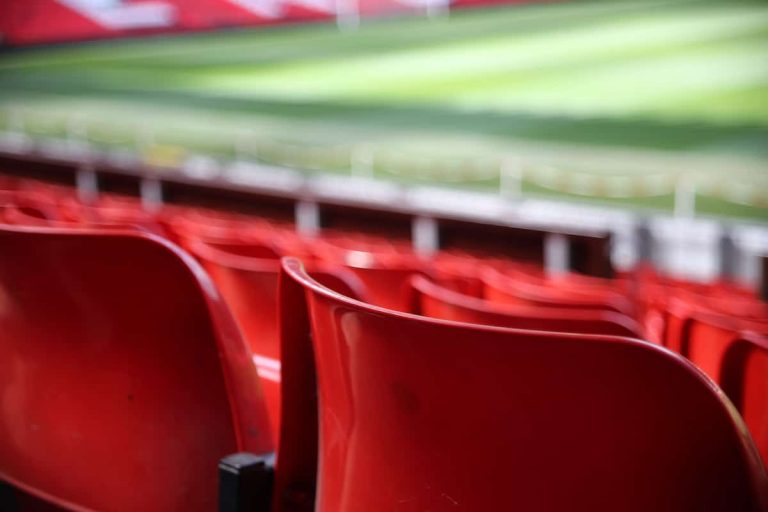How to Analyse a Football Match

Table of Contents
How Are Football Matches Analysed?
Football match analysis involves looking at different aspects of a football match together in order to create an informed conclusion of what happened. Factors such as football data, how each team presses, which formation they play in, who is their manager and more should be considered to make a qualified judgement.
How to Analyse a Football Match
If you’ve ever been interested in football analysis, this article should provide you with a lot of helpful answers that will help you analyse a football match in the future. We’re going to cover a range of areas that fall into football match analysis including xG, different management styles and more.
xG Analysis
The most hotly discussed football statistic of all time, xG is a great avenue to explore when analysing football matches. Footballing sides who generate high xG values during matches create more high quality chances, and this reflects how they play.
Furthermore, the xG metric is now being used to make high level decisions at football clubs, including which players are signed and what type of manager is approached. In the Premier League, Brentford and Brighton were two of the teams who adopted the “data driven” approach early on. This makes sense when you realise both clubs have owners with a background in the gambling industry, which is similarly data driven.
With analysts, pundits and journalists all mentioning xG on a regular basis, we recommend using the metric to form part of your football match analysis.
Using Football Data
When we talk about using football data to form football analysis, we’re not just concerned with xG. There are lots of metrics readily available from every match that can provide different insights as to what happened during over 90 minutes.
You might be wondering how all this data is collected. It involves groups of football analysts watching matches live and using a combination of manual processes and technology to track the actions of a match. This data is then put through a post match analysis process to check that the information is as accurate as possible.
Learn how football data is collected.
Analysing the Tactics of the Managers
Another great are to explore when conducting football match analysis is analysing the tactics of the football managers involved in the match. Every football manager has their own tactical philosophy, and this can be fascinating to explore.
Managers spend all week drilling their tactics into their players to ensure that their team is able to play that way on the weekend. Two similarly tactical managers meeting can be interesting, whereas two totally different tactical styles can also be interesting to analyse.
In the modern game, football is a tactical battlefield where managers are constantly making tweaks to their tactical setup. These shifts tend to be influenced by some of the biggest tactical managers in the game including Pep Guardiola, Carlo Ancelotti, Thomas Tuchel and more.
Learn who the most tactical football managers are.
Look at Football Teams Pressing Styles
We also recommend taking some time to analyse the pressing style of football teams when conducting football match analysis. Pressing is the main way a team wins the ball back when they’re out of possession.
In recent years, there has been a huge emphasis on pressing, with many sides focusing on this area when creating their tactical setup. We’ve seen a Newcastle United side become a pressing juggernaut since Eddie Howe’s arrival in 2021 and this is one of the main reasons why they’ve been winning so many matches. Their intensity has become overwhelming for the majority of their opponents.
A press doesn’t always have to be aggressive to win matches either, tactical mid and low blocks can equally be effective when implemented well.
Learn what pressing is in football.
Explore Different Phases of Play
When analysing a football match, it’s worth looking at how a team plays during the different phases of play. In possession, there are four main phases – Build-up, Progression, Creation and Transition. Each of these phases demand different requirements from players.
Sides that play well in all phases of play tend to get more wins than teams that don’t and this is why we recommend looking at this area of the game in your analysis. Analysing the different phases of play might help you identify potential problems in a side’s playing style.
Learn the different phases of play in football.
Phases of play allow teams to create overloads in different areas of the pitch, and this is definitely something to look out for during your analysis.
Learn what an overload is in football.
Look at Football Formations
Another big area to look at during football analysis is the formations used by both teams. The formation is chosen by the manager of a side to give their team the best chance of winning the game. They’ll choose the formation that best suits the tactics they’d like their team to play during a match.
Football formations come in lots of different shapes, and seeing two teams play each other in contrasting formations can be really insightful to witness. Formations also fall in and out of fashion with managers, and the popularity of certain playing styles can favour particular shapes, this is definitely something we recommend keeping up to date with.
So next time you’re watching a football match, it’s worth looking at how a team sets up positionally at the first whistle, when they’re in possession and when they’re out of possession.
Conclusion
Although there is no set way to analyse football matches, there are lots of different areas to consider when conducting analysis. We recommend looking at the areas we’ve discussed, as these should help you create a logical conclusion from the match you’re watching, revealing some interesting insights for both teams.
Some analysts might favour looking at certain areas to conduct their analysis, but everybody is different. Football analysis is subjective, but that’s what makes it so interesting.
We hope that you learned something useful today from this guide and feel more comfortable analysing football matches in the future.






